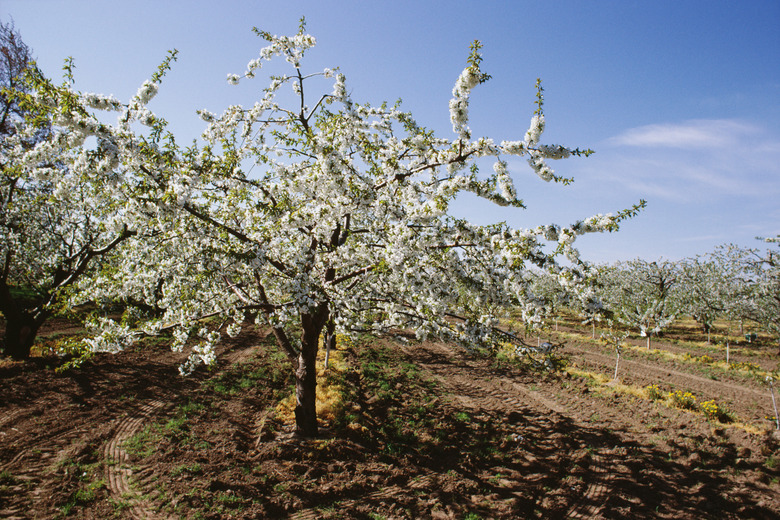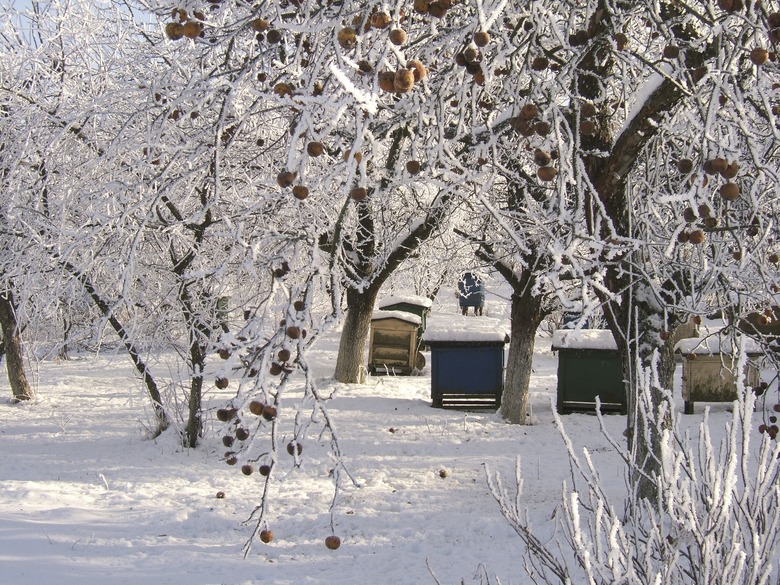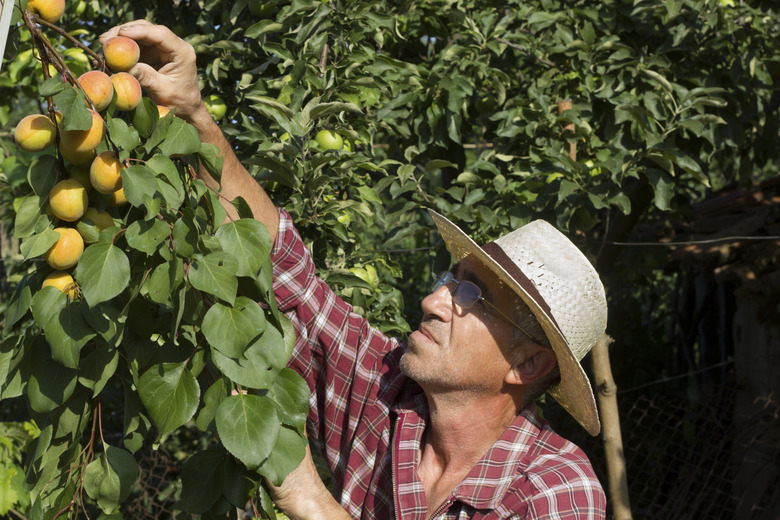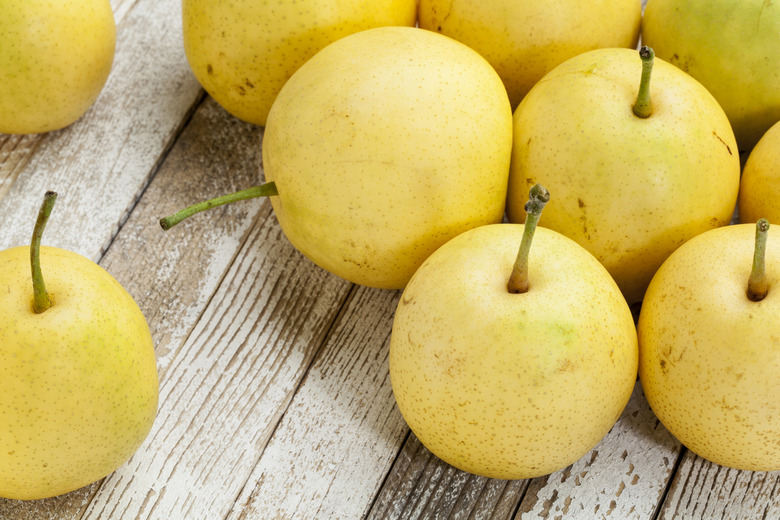Fruit Trees That Like Wet Soil
Fruit trees do not thrive in wet soil. Excess water in the surrounding soil inhibits the ability of a tree to take in oxygen through the roots. Excess water also promotes crown rot. Both of these scenarios can prove fatal to a tree. But there are gardening techniques to help prevent such disasters. By purchasing the right rootstock you can preserve and maintain a fruit-bearing tree that can tolerate those nasty wet soil conditions.
What is Rootstock?
Rootstock is the root of a tree or plant that is bred specifically for the durability of its roots. The cuttings of another tree or plant will eventually be fused to the rootstock. The rootstock is preferred because of its tolerance for certain soil conditions or resistance to disease. The cutting, also called the scion, is grafted onto the rootstock and will bear the fruit or leaves it would naturally produce. This is a popular method of asexual plant reproduction that allows a gardener to grow a tree that would otherwise not survive in a particular climate or environment. There are over 100 varieties of rootstock for fruit bearing trees. Apples alone have twenty.
M111
M111 is an excellent and strong rootstock for apples. It will induce fruit bearing at a younger age than most other rootstocks and is tolerant not only to wet soil, but poor soil, dry soil and soil in high temperature areas as well. Not only can it handle volatile soil, it is also resistant to wooly apple aphids, collar rot and the potentially fatal fire blight infection. They are also popular in Canada because of their resistance to cold weather. They can grow twenty feet high.
Citation
The citation rootstock is used to grow peaches, nectarines, apricots and plums. It does very well in wet soil and requires regular watering if the soil becomes too dry and in fact, this root stock will become dormant if the soil is too dry. Citation root stock is also tolerant of cold weather. It is preferred because of its ability to induce heavy fruit bearing early on.
Betula
Betula is the rootstock for Asian pears. It can grow to a maximum height of twenty-five feet and tolerates wet, dry, and alkaline soil. It has even proved itself capable of surviving flood damage. Betula is a strong rootstock that can withstand temperatures beyond -10° F.




